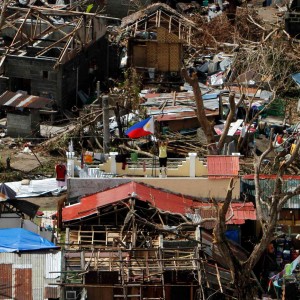Disaster survivors’ mental health must not be ignored
It is all well and good to look after the survivors’ physical health, but their mental health must not be ignored.
Dr. Jacob Thomas, outgoing president of the Asian Hospital Federation (AHF), said mental disorders are clear but often underestimated threats in disaster-affected communities.
During the 64th annual national convention of the Philippine Hospital Association (PHA) at the SMX Convention Center at the SM Mall of Asia complex last Nov. 22, Thomas, quoting the World Health Organization (WHO), said “Health is a state of complete physical, mental and social well-being and not merely [the] absence of disease or infirmity.”
Thomas addressed this message especially to those who will be engaged in caring for the survivors of 7.2-magnitude earthquake and Supertyphoon “Yolanda,” whom he said will be at greater risk to posttraumatic stress disorder (PTSD) and other mental disorders.
Moved by a short film produced by University of Santo Thomas advertising arts students Joelyn Alumno, Armine Austria, Jose Mendoza, Ranzelle Ruelos, Josephine Valbarez and Jan Villanueva, linking depression to suicide, Thomas is pushing for a proactive approach to deal with posttraumatic stress disorder among the disaster survivors.
Article continues after this advertisementAccording to the American Psychiatric Association, PTSD “is a severe condition that may develop after a person is exposed to one or more traumatic events, such as sexual assault, serious injury or the threat of death.” The diagnosis may be given when a group of symptoms such as disturbing recurring flashbacks, avoidance or numbing of memories of the event and hyperarousal (high levels of anxiety) continue for more than a month after the traumatic event.
Article continues after this advertisementThe US Department of Health and Human Services’ National Institute of Mental Health, said PTSD is often accompanied by depression, substance abuse, or other anxiety disorders.
PTSD, depression and suicide
More than 350 million people of all ages worldwide suffer from depression, according to the WHO. Depression alone accounts for 4.3 percent of the global burden of disease and is among the largest single causes of disability worldwide. At its worst, it can lead to suicide.
Dr. Mark Van Ommeren of the WHO Department of Mental Health and Substance Abuse said during the WHO conference on May 5, 2005 in Phuket, Thailand, that exposure to disaster is a serious risk factor for social distress, mental distress and somatic distress. “[It] is a risk factor for depression and anxiety disorders, such as posttraumatic stress disorder, [and] puts people with preexisting mental illness at further risk.”
On the other hand, most people are resilient and over time are able to bounce back from tragedy, the American Psychological Association said. “It is common for people to experience stress in the immediate aftermath, but within a few months most people are able to resume functioning as they did prior to the disaster. It is important to remember that resilience and recovery are the norm, not prolonged distress.”
For Ommeren, most governments direct only scarce resources to mental healthcare. “In many countries the bulk of limited financial mental health resources are allocated to mental hospitals, [wherein] most patients often stay for months or even years, and usually in less than acceptable conditions,” he said.
Ommeren noted the importance of community mental health services. “They can serve not only a selected number of severe mentally ill but also large numbers of disaster-affected people with depression and anxiety.” He added that as long as government mental health resources continue to be spent mostly on mental hospitals, it will be difficult to have sustainable mental health services for traumatized people.
Mental health neglected?
On the other hand, Thomas, said hospitals are usually just concentrated on treating people’s physical ailments and disorders. “The mind, which is so powerful and controls the rest of the body, is often neglected.”
There is a need to change this mindset, he said. “Mental health is the one thing that should not be ignored by the government and private [healthcare] sector.”
The United Nations, the WHO, regional healthcare groups like the AHF and PHA, religious organizations, educational institutions, medical professionals and the family all have a role to play in combating the threat of PTSD, according to him.
Thomas said, “Good mental health enables people to realize their potential, cope with the normal stresses of life, work productively and contribute to their communities.”
